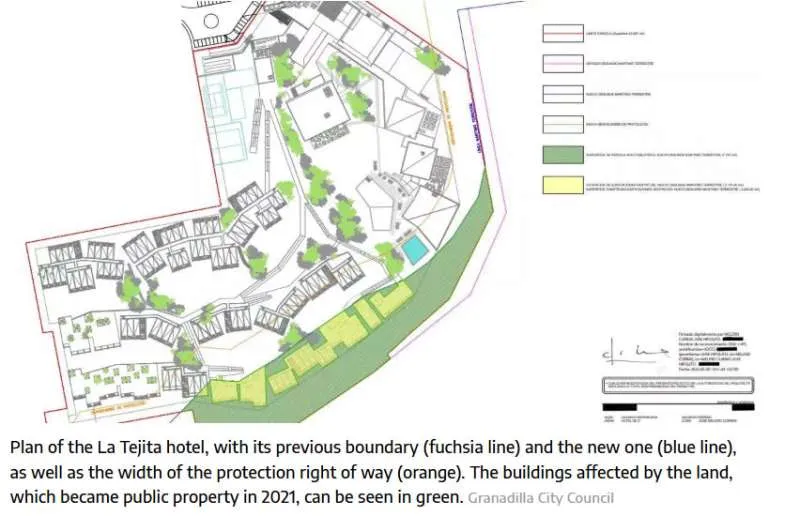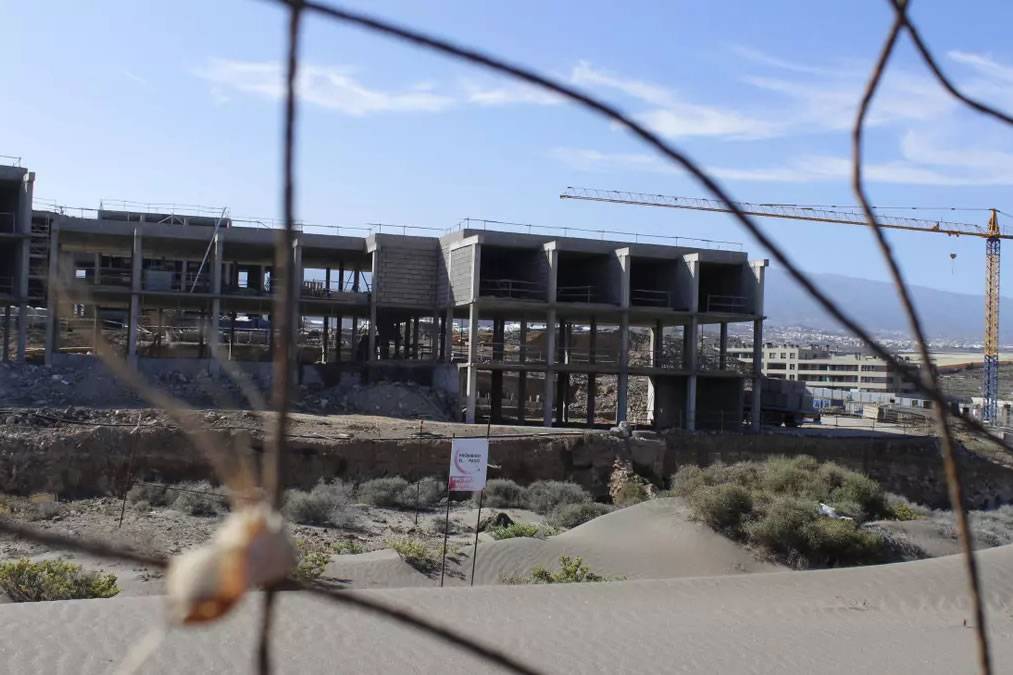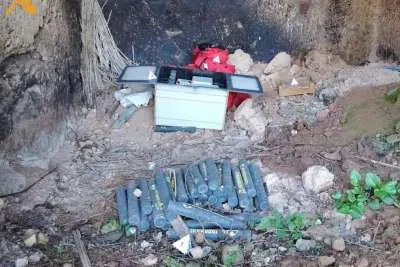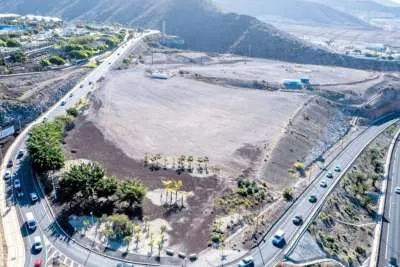Spanish Court orders State to cede public land for La Tejita Hotel despite Costas objections
- 21-06-2025
- Tenerife
- Canarian Weekly
- Photo Credit: Salvar La Tejita
The National Court of Spain has ruled that the State must grant a licence for the construction of a hotel at La Tejita beach, in Granadilla de Abona, in the south of Tenerife, despite the fact that part of the planned development lies on public land.
The court’s decision goes against the objections of the Coastal Authority (Costas) and the State Attorney’s Office, both of which argue that granting such a licence would be “manifestly contrary” to the coastal protection legislation.
The judgment confirms a 2021 boundary revision that designated part of the hotel’s construction site, approximately 30%, as maritime-terrestrial public domain.
This decision follows years of legal disputes and ecological concerns surrounding the project’s proximity to the Montaña Roja Nature Reserve and a sensitive dune system that connects the land with the sea.
Court Recognises Public Land, But Orders Licence
The original boundary, established in 2002, was revised after environmental organisations warned that inland shifting dunes in the area were critical to the stability of nearby beaches. The court agreed that these dynamic dunes should be protected as part of the public domain, rejecting the developer’s technical reports questioning the natural origin of the sand deposits.
A report by state-owned company Tragsatec confirmed that the dunes are fed by winds from the northeast and south, playing a vital role in coastal defence.
Despite reaffirming the public ownership of part of the land, the court ordered that the developer, Construcción, Promoción y Derivados SA, must be granted a usage concession under the terms of Spain’s updated Coastal Law of 2013. This legislation differs from the 1988 version, obliging the State to issue such licences automatically (“de oficio”) rather than requiring the developer to apply for them.
The licence, the court said, should cover a period of 75 years and respect “existing uses and developments,” without requiring the payment of a fee. However, the judgment remains vague on how to interpret “existing uses,” leading the developer to request further clarification from the court.
Dispute Over What Constitutes 'Existing Use'
The developer argues that the urban planning licence granted by Granadilla de Abona’s council in 2017 should suffice to prove existing use. In contrast, both the State Attorney’s Office and the Coastal Authority maintain that only developments physically built or in use before the boundary revision process began in January 2019 should qualify.
At that date, the hotel’s construction had not yet commenced, meaning no effective hotel use or physical development existed. The State Attorney’s Office warns that granting a concession for tourist use on undeveloped land could be “manifestly contrary to the intent of coastal legislation,” allowing for a type of development currently prohibited on that stretch of protected coastline.
The Coastal Authority has suggested that, instead of granting a usage concession, the company may be entitled to financial compensation for the loss of ownership due to the boundary revision. As Ainhoa Pérez Puyol, Deputy Director-General for Costas, stated: “The right to obtain a title cannot be interpreted as the automatic granting of one.”

Environmentalists Alarmed as Construction Progresses
Meanwhile, the environmental association Salvar La Tejita has expressed shock at the court’s ruling, warning of the irreversible consequences for the fragile dune ecosystem.
In a statement, the group accused the developer of having “deliberately destroyed” part of the dune corridor with heavy machinery over recent years, and called on Costas to stand firm and prevent any construction on the public portion of the site.
Environmentalists also point out that construction works are proceeding “at great speed” and estimate that the disputed area could host around 200 hotel beds if completed. The association is now considering lodging an appeal against the National Court’s decision.
The case highlights the ongoing tensions between economic development and environmental protection along vulnerable coastlines, where the 2013 legal reform has complicated long-standing principles of public coastal stewardship.
Other articles that may interest you...
Trending
Most Read Articles
Featured Videos
TributoFest: Michael Buble promo 14.02.2026
- 30-01-2026
TEAs 2025 Highlights
- 17-11-2025
































































